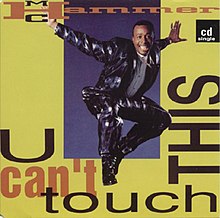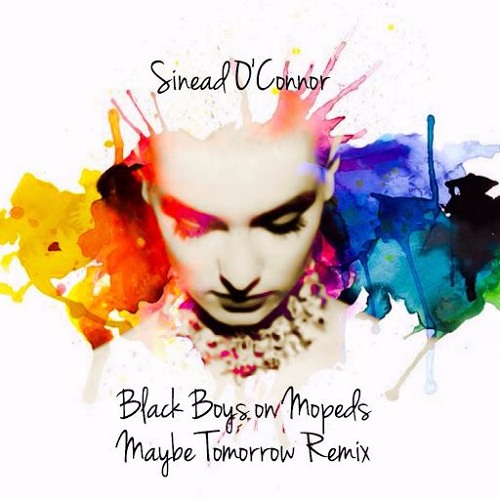 | U Can’t Touch ThisM.C. Hammer |
Writer(s): Stanley Burrell/Rick James/Alonzo Miller (see lyrics here) Released: January 13, 1990 First Charted: March 30, 1990 Peak: 8 US, 4 CB, 11 RR, 11 RB, 3 UK, 8 CN, 15 AU, 3 DF (Click for codes to charts.) Sales (in millions): 0.5 US, 0.4 UK, 1.09 world (includes US + UK) Airplay/Streaming (in millions): -- radio, 583.52 video, 353.55 streaming |
Awards:Click on award for more details. |
About the Song:When Stanley Burrell emerged from the West Coast rap scene in the late ‘80s, he took on the name MC Hammer in celebration of a nickname from his youth. As a bat boy for the Oakland A’s baseball team, he was nicknamed “Hammer” because of his similarity to baseball legend “Hammerin’ Hank” Aaron. After the 1987 independent release of Feel My Power and his major label debut with Let’s Get It Started in 1988, Hammer made it big with his third album, 1990’s Please Hammer Don’t Hurt ‘Em. To market the album’s first single, “U Can’t Touch This,” the record company sent out cassette singles to 100,000 kids asking them to request MTV to play the video. It worked – viewers embraced his dance-oriented performance in outrageously baggy pants and made it the network’s most-played video of 1990. SF It also won the network’s 1990 video awards for Best Rap Video and Best Dance Video. The song, which won Grammys for Best R&B Song and Best Rap Solo Performance, was also the first rap song to be nominated for Record of the Year. WK Despite the huge success of the video, the song only reached #8 on the Billboard Hot 100. This was before the company developed technologies to track actual sales and airplay and relied on figures given to them by record stores and radio stations. While audiences clearly embraced the song, the music industry wasn’t quite ready to accept the commercial viability of rap music. However, there was no denying the song’s impact. Please Hammer Don’t Hurt ‘Em spent 21 weeks atop the Billboard album chart and spawned two more top-ten pop hits with “Have You Seen Her?” and “Pray.” The song is “the perfect good-time song for nostalgia parties or mere reminiscence of the era that brought us In Living Color and Vanilla Ice.” AMG Hammer “borrowed the monster hook from Rick James’ ‘Super Freak’ and layered a few solid rhymes over it, his somewhat gravelly voice and supreme confidence covering up any deficiencies in lyric or delivery.” AMG James had consistently turned down rappers who wanted to sample his music. According to James, his lawyers authorized the use of “Super Freak” without his permission. SF He sued for copyright infringement and received millions in royalties when the case was settled out of court and Hammer agreed to credit James as a songwriter. Resources:
Related Links:First posted 3/23/2020; last updated 6/18/2023. |











:format(jpeg):mode_rgb():quality(90)/discogs-images/R-10222-1186530937.jpeg.jpg)